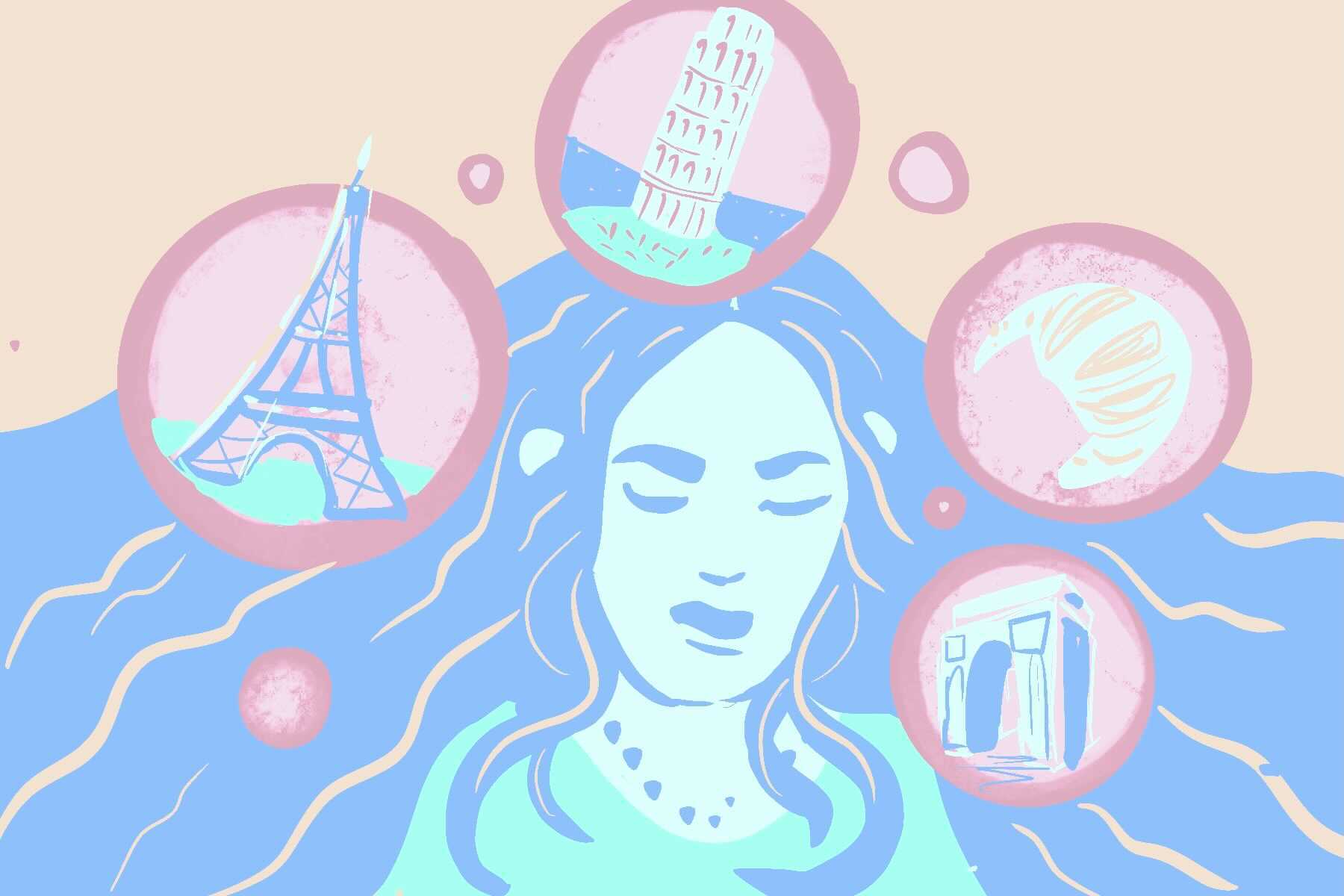If you ever have the chance to speak to an Italian local, a French local or even a Scottish local, chances are they all think their respective countries are the most beautiful in the whole world. People can’t seem to get enough of the glitz and the glamor of Europe. Evoking images of travel mood boards, prominent fashion names and thoughts of the quintessential European lifestyle, the peninsula of peninsulas has always been a desirable holiday destination and point of inspiration. A hub of various cultures, cuisines and traditions teases travelers, writers and moviemakers alike.
The rolling hills of the Cornish countryside, the sun-drenched coastline of the Mediterranean Sea, cheese wheels and wine by the barrel … bliss! Europe is undoubtedly a romantic place from every angle but perhaps that romance lives on a glorified pedestal in our heads and gets perpetuated by the entertainment industry, while the reality of Europe is not quite as it seems.
A tangible (and shockingly prevalent) example of this duality is “Paris Syndrome,” a dramatic culture shock, mostly affecting Japanese tourists, that induces stressful clinical symptoms such as vomiting, fainting and delusional hysteria — all because Paris is actually much dirtier and less inviting than the entertainment industry would have the world believe. In fact, there are claims that a 24-hour hotline is available for Japanese tourists and expatriates who reach their limits as Paris Syndrome kicks in. However, the Japanese embassy in France has not confirmed the existence of this hotline. Nevertheless, what a strange and particularly specific response to raging disappointment, and all because of tourism no less. The majority of people who visit Paris for the first time eventually uncover the misconceptions about the city and leave feeling disappointed and appalled at the true nature of French culture.
Perhaps, however, our ideals can’t be helped, given the movies we watch, the books we read and the influencers we follow, all of which provide us with a glimpse of something that only exists in a small, isolated niche. Media and entertainment have certainly capitalized on these glamorous, clichéd perceptions of cobblestone streets, quaint little villages and racks of designer clothes.
Movies such as “Eat Pray Love,” “Mamma Mia!” and “The Holiday” do a considerable job at leaving their audiences fancying a cottage-style holiday home or experiencing an idealistic romance in a faraway land. The crème de la crème of this is certainly the old faithful, “Emily in Paris.” How the French population bucked and gasped at the American-French drama series that follows the utopian life of a young, ambitious American woman as she navigates the City of Light with all its “quirky” little facets proves just how sensationalized its depiction of Paris is. From the get-go, French stereotypes bubble up to the fore and ultimately make a minor mockery of French culture. Yet the show remains quite popular despite its obvious distortions, with many people eagerly lapping up each episode of Season 1 and commenting on the idealistic absurdity of things before searching for the release date of Season 2.
Beyond books and movies, famous songs and well-known fashion houses do their part in drawing the world’s attention to Europe: Spanish music has seen a steady rise in popularity over the past two or so decades, with the likes of the Gipsy Kings and Rosalía breaking into mainstream music tastes. Måneskin’s Eurovision 2021 victory sparked sudden global interest in the Italian rock band and their catchy, bilingual music repertoire. Even older, more classic music acts such as Édith Piaf — the darling of French music with her widely known magnum opuses “La Vie En Rose” and “Non, Je ne regrette rien” — remain audio staples with vintage, European appeal. Fashion house moguls like Chanel, Dior, YSL, Gucci, Versace and Dolce & Gabbana all represent the stronghold of European fashion and how European style influences the rest of the world. Even down to the smallest details, such as a Swiss Army Knife or Belgian waffles, we certainly all have our share of enjoying the little charms and trinkets that come out of Europe (besides colonialization of course — and I oop!).
However, the crux of the argument is that normal, everyday life for any European — from the Italian to the French to the Scottish — is not necessarily as glamorous as we hope for it to be. While European culture and colloquialisms offer travelers, artists and enthusiasts a quaint relief or palette of inspiration, at the end of the day, Europeans are still just people. They live just as we do with families, jobs, taxes and real-life personalities outside of sensationalized stereotypes. Sure, stereotypes are sometimes rooted in truth and cultural differences imprint individuals to some degree, but if you were to arrive in Rome and greet a local with extravagant hand gestures and say how lucky they are to live in such a beautiful country, they would probably agree with you, but their troubles as human beings are equally as palpable as the rest of the world’s.
We can’t expect everyone to be a caricature of themselves or cater to romanticized ideals at all times, especially when that image can be quite different to every person. So yes, Paris Syndrome affects tourists because Paris is really not as the entertainment industry would have the world see it, and it goes to show that taking the time to conduct research on the country and people you wish to visit for holiday is very important. Be open and respectful to these cultural differences, even if you don’t necessarily understand them.
Ultimately, this principle is something you should consider wherever you go and with whoever you meet. The individualism of people and communities should be valued and respected, even if a groggy French waiter yells at you because you used incorrect grammar when ordering your petit café. Movies and TV shows might offer a flawless, idealistic reprieve from la vie quotidienne (or “everyday life”), but don’t let those romanticized notions form the basis of your travel plans. Instead, make sure to conduct proper research before embarking on a dreamy, summer vacation.

















